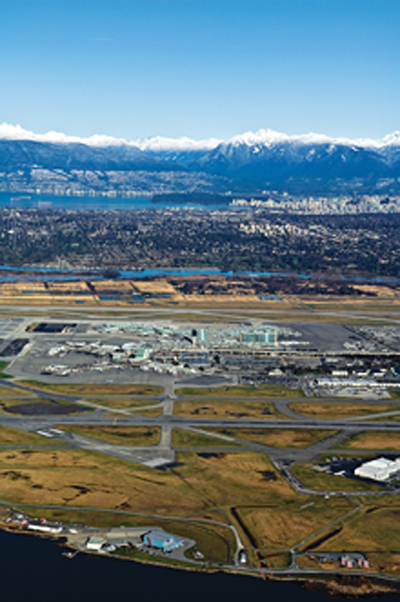
Features
Operations
On Final: Olympic security yes
The 2010 Winter Olympics will bring the attention of the world to British Columbia and Canada.
November 30, 2009 By John McKenna
The 2010 Winter Olympics will bring the attention of the world to British Columbia and Canada. Hundreds of millions of people will tune in to the Games and thousands will attend, including world leaders and royalty. Canada will cheer on its athletes, as they attempt to better the 24-medal mark obtained in Turin. We will all hope that the men’s hockey team makes the medal round and atones for its disappointing quarterfinal loss to Russia in Italy. Canada will be on an Olympic high for a few weeks preceding and during the Games. Politicians will try to reap as much credit as possible from the national enthusiasm, hoping it will convert into votes at the next elections.
 |
Olympic security cost estimates have gone from $175 million in the 2002 budget to $900 million in 2009. The final tally will probably be closer to the $1.4 billion Turin Olympics security bill in 2006. That is indeed a high cost, especially when you consider that roughly only 2,500 athletes participate in winter games compared to the nearly 12,000 athletes at the 2008 Beijing Games. Although politicians have already leaked that the $1 billion mark will be reached, should the $900 million estimate turn out to be accurate, this would translate into $360,000 per athlete. There are economies of scale and other factors that make it difficult to compare Winter and Summer Olympics, especially if they are held in a communist country, but there is no reason to believe that the Vancouver Games will cost less than the Turin Games, which amounted to $560,000 per athlete.
“Outrageous” is the only word that comes to mind when looking at these numbers.
The 2008 Vancouver Olympics budget, excluding security, is set at $1.8 billion, which is roughly $200 million more than the Turin Games budget. The security budget therefore represents 30 per cent of the total consolidated budget.
These staggering numbers, however, fail to reveal other costs associated with Vancouver Olympic security, namely the costs incurred by local air transport companies. For some time now, ATAC and the local carriers and flight schools have been trying to reason with local and federal authorities, arguing that the current security measures will result in serious, and in some cases, dire consequences for many local air transport companies. Flight schools will be all but grounded for more than six weeks, seriously jeopardizing their very livelihood. Air shuttle operations around Vancouver, offering vital services to many hard-to-reach outlying regions, will see their operations seriously compromised by access limitations and detours via selected ports of entry equipped with security scanners. These measures, which in many cases will more than double the flight time normally required, will scare the clientele away. Even if passengers continue to use these services, the added cost to the carriers cannot be passed on to them.
Sightseeing flights around the picturesque region of Vancouver will be forbidden, depriving carriers of a rare opportunity to serve worldwide visitors coming in for the Games. Carriers flying people and cargo to the many regions of the province will be the last priority for air space clearance, basically cutting off that lifeline to the regions.
ATAC is certainly not opposed to security. Security is a serious matter and we expect our governments to protect its people and Olympic visitors. Air carriers in this case, however, should not simply be considered as collateral damage. We call on the Canadian government to fully assume its responsibilities. If its actions jeopardize the livelihood, and in some cases the very existence, of legitimately established air carriers and flight training organizations, it should compensate them. Carriers affected by what some consider overly zealous security measures are not trying to benefit from government compensation, they are simply trying to recover the serious losses they will have to incur as a result of these measures.
ATAC has been speaking on behalf of its members in B.C. on this issue for almost two years now. We are asking compensation for all members of the air transport industry affected by the security measures. There are precedents in Canada where compensation has been paid to carriers affected by severe security measures for events such as 9-11 and G8 summits. ATAC will go the distance to make sure that the B.C. air industry as a whole is compensated. We are hoping that the Canadian government will see fit to pay out the few million dollars needed to make reparation on its own and not as a result of court action, which we would not hesitate to undertake should that be required.
John McKenna is the president and CEO of the Air Transport Association of Canada (ATAC).